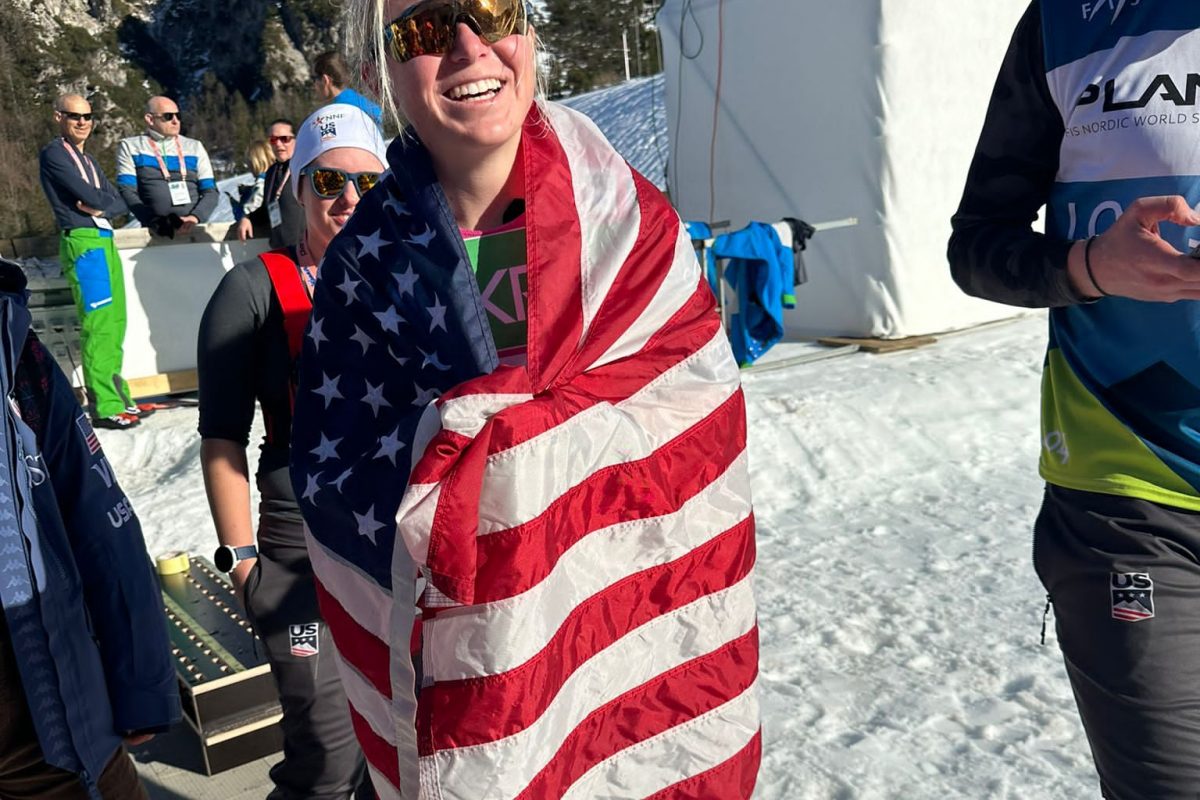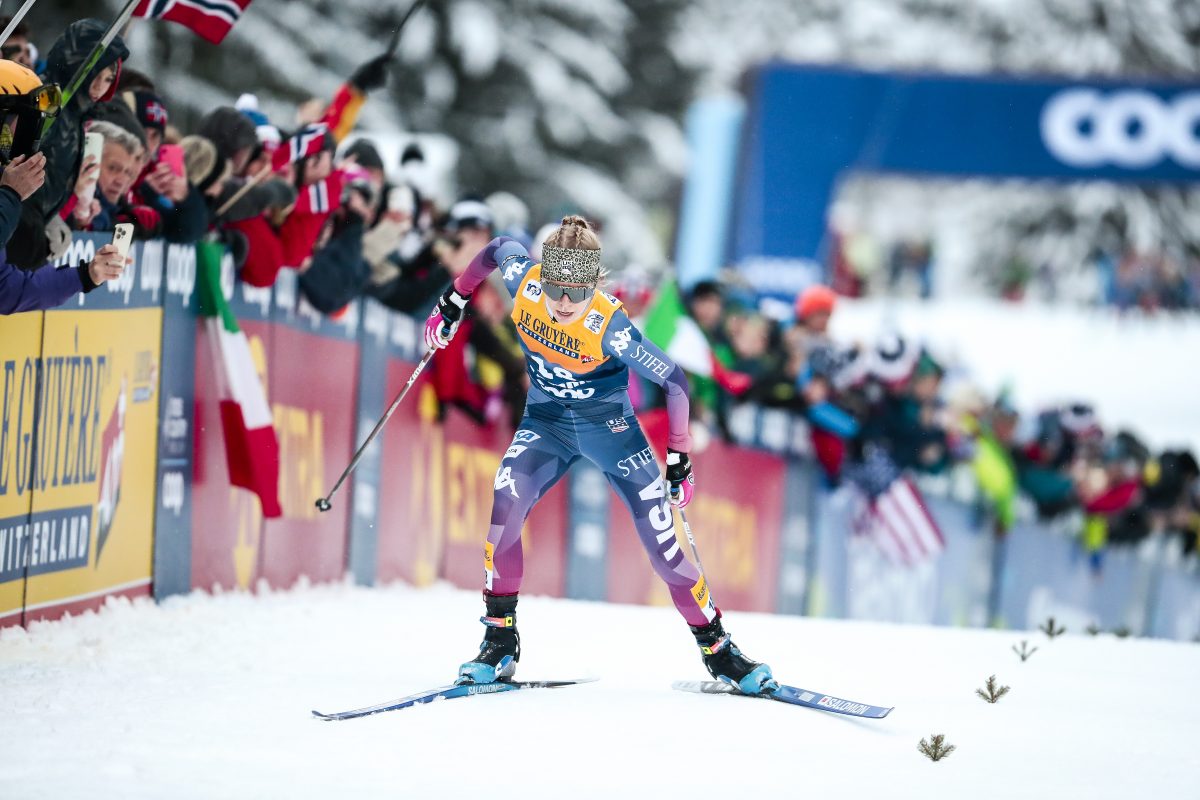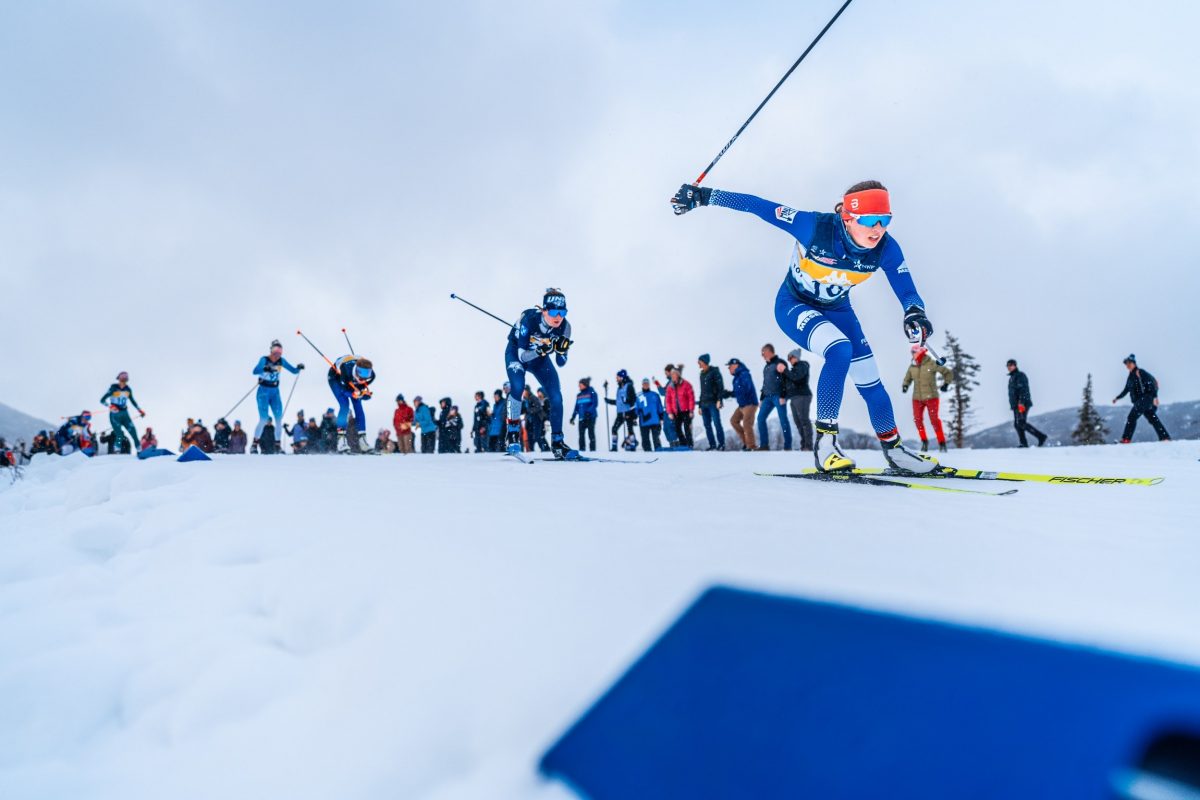
When the International Olympic Committee (IOC) held their first-ever winter Youth Olympic Games in Innsbruck, Austria in January, they invited many of the best teenage athletes in the world to compete in 13 sports.
But it wasn’t only the best young athletes who converged on the historic venue, which also hosted the 1964 and 1976 Winter Olympics. The IOC invited some of the biggest stars in winter sports – many retired, but some still competing – to act as youth ambassadors.
Canada’s Beckie Scott found a different way to help out at the Games. A member of the IOC, she had helped organize the event, but also participated as the Chef de Mission for the Canadian team. Scott spent time with her country’s up-and-coming athletes and tried to attend at least one competition for each of the 13 sports.
As a three-time Olympian, the first North American woman to win a medal in cross-country skiing, and a former runner-up in the overall World Cup standings, Scott had plenty of inspiration and advice to offer her team. She’s also married to Justin Wadsworth, who is now the head coach of the Canadian national ski team, so despite the fact that she’s retired and spend more time focusing on her two young children, Scott still has very close ties to high-level sports.
FasterSkier was able to catch up with Scott and ask about her work in Innsbruck and how the Youth Olympic games compare to the senior Olympics.
FasterSkier: It’s really cool that you got to go to the Youth Olympic Games!
Beckie Scott: Yeah. I went there as the Chef de Mission for Canada at the Games there, and I was already pretty familiar with the event and how it all worked because I was also a member of the IOC Coordination Commission to oversee those Games. It was a great experience.
FS: How did you get involved with the Coordination Commission?
BS: I’m a member of the IOC, and as members we are delegated to different committees, so I was assigned to the Coordination Committee for the Youth Olympic Games for 2012.
FS: And how did you get picked for the Chef de Mission role?
BS: I was invited by the Canadian Olympic Committee (COC) to do the role, and I said yes!
FS: And what does a Chef de Mission do? What does that mean?
BS: It means a lot of things, actually. You oversee the team. And because of the age of our team I was also the legal guardian if anything happened – so it involved that end of authority, I guess. And I did a lot of liaising between our staff who were on the ground and the athletes. Then I also made a really big effort to get out to see as many athletes as I could competing in their events and support them on the sports side of things. It was a pretty diverse role and very busy at times, but all good.
FS: How did you find that the Youth Olympics compared to your own Olympic experience? Did you think it was a mini-Olympics?
BS: There are some parallels, but they don’t really try to make it a mini-Olympics. The concept is very different. While it is a big-games event and there are similarities, like living in a village and transport and eating in a big dining hall, and experiencing really first-class venues, the Youth Olympic Games also incorporates a whole [additional] aspect to it which is called the Culture and Education Program. It’s part of the event experience. So there are activities designed to invoke the Olympic spirit and Olympic values – to educate, inform, and give the young athletes a chance to interact with each other, to meet each other, develop friendships, and take part in activities that they wouldn’t necessarily normally have a chance to do.
FS: Did you know any of the Canadian athletes before you went over?
BS: I did know the cross-country skiers, and that was it. I think I had met one of the biathletes also. So that was a brand new experience.
FS: When you were at the Olympics as a competitor, did you get to meet a lot of athletes from other sports? You must have had a lot more freedom to check out other competitions this time.
BS: Oh, definitely. There’s no question that I was fully focused, as an athlete.
FS: Do you think that the young athletes in Innsbruck had more of a chance to mingle then senior athletes do?
BS: Yes, because the cultural experience isn’t really the same at the real Olympics. There’s no Culture and Education Program at a real Olympics – it’s all about the competition there. So this is unique to the Youth Olympic Games and I think that the athletes who were there who I saw participating in it were really enjoying it and got a lot out of it.
FS: For you as a senior athlete, what was the difference between the Olympics and something like World Championships, which is very important but only your sport?
BS: I think one thing that’s really different when you go to the Olympics is that you’re very much as one team, as Canada. You are there alongside all these other sports that you never get a chance to interact with during your regular competitive season or even at a World Championships. So it is a really amazing opportunity in that respect, because you do get to meet some fellow athletes and who you otherwise wouldn’t have met. And often those experiences can lead to really good friendships. So that’s the biggest difference – you’re there as one country.
FS: Do you think that national solidarity was replicated at the Youth Olympics?
BS: I think it was to some extent, but they also didn’t encourage it too much. They had some events where there were mixed teams, so they’d be participating together – for example in curling [note: curling had a mixed doubles event, which featured two athletes from different countries on each team]. So there was some solidarity and some encouragement, but I wouldn’t say that it was as defining as at the real Olympics.
And it was the same with the medal count. There was no real medal count. There was a medals plaza and you’d go there in the evening or the afternoon when medals were celebrated, but that was it. There wasn’t a big emphasis on medals. It was on performance, and that the athletes come away feeling positive.
FS: Were there any events or results that you were particularly impressed with, or that seemed like real breakthroughs for Canada? Anything particularly cool that happened?
BS: You know, I think it was all cool! I was really impressed with all of our athletes. I got to see some sports that I hadn’t actually seen in competition before, like ski halfpipe and snowboardcross – those are sports that I just hadn’t had that much opportunity to watch before. So that was fun. And conversely, seeing our boys’ hockey team play and get a bronze medal was really great. So I really enjoyed every single sport that I got out to. And our team was small enough that I actually got to know a lot of the athletes quite well, and felt a real connection to them. I really enjoyed watching them compete.
FS: Do you feel like this will have a big impact on them as they develop into senior athletes, maybe leading towards a real Olympics?
BS: It’s really hard to say at this stage in their careers. Most of them are between the ages of 15 and 17. And if they do go on to a career in sport, it could be decades long, so it’s really hard to tell what an experience like this will really do for them. But I do feel that the emphasis of being positive, and being as one team and supporting each other, and trying to make sure that the experience was as enjoyable and memorable as possible, will definitely not discourage them from continuing to pursue their sports! Everything is good, at this point, but it’s really hard to say exactly what paths they all will take, and how this one event shaped that.
FS: Have you done much other work with athlete development in Canada?
BS: This is really the extent of my involvement with the COC. I am a member of the board…. I have been involved in the development of cross country skiing. But as far as Olympic sport goes, I’ve had limited involvement.
FS: You must be pretty busy with the kids these days.
BS: Yeah, life is full right now, for sure. But it’s all good. There are different challenges [now], but there are a lot of rewards at the end of the day. I’m very happy right now with my choices.
FS: “Extremely involved” would be an understatement for Justin’s relationship with Canadian skiing. What’s it like to watch the sport through that lens and be so close to everything, yet be on the outside?
BS: It’s exciting, because I see how invested he is in their performances and trying to help them as best as he can. So when there are results and they do perform at the highest level, it’s just really exciting, because I know it’s a great success for him as well.
And it is fun to be involved with the sport at some level. I don’t think I’ll ever not be. I still love it, and I still follow the results – maybe not as closely as I did when I first retired, but I still watch, just from afar now.



